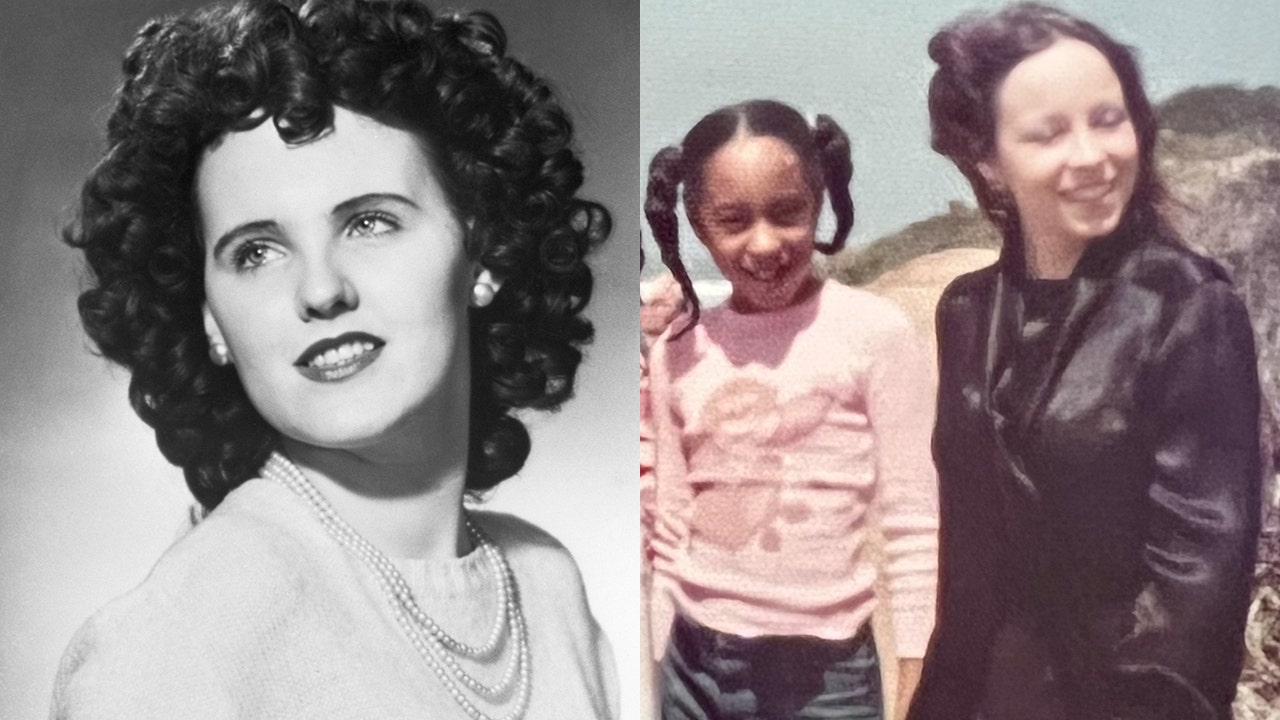Unveiling The Mystery: Black Dahlia Murder Pics – A Dark Dive Into History
Picture this: A city buzzing with life, dreams, and shadows. In the heart of Los Angeles in 1947, a young woman named Elizabeth Short, known as the "Black Dahlia," became the center of one of America's most infamous unsolved murder cases. Her tragic story left behind a legacy of mystery, fascination, and chilling images that continue to haunt our collective consciousness. Today, we delve deep into the world of Black Dahlia murder pics, exploring their significance, impact, and the enduring allure of this dark chapter in history.
From crime scene photos to artistic interpretations, the Black Dahlia murder pics have become a symbol of both horror and intrigue. These images not only capture a moment of tragedy but also serve as a window into the complexities of human nature and society's obsession with unsolved mysteries. But why do we remain captivated by these haunting visuals? Let’s find out.
This article aims to shed light on the Black Dahlia murder pics while respecting the sensitivity of the topic. We’ll explore the historical context, analyze the significance of these images, and discuss how they’ve influenced popular culture. So buckle up, because we’re about to take a journey through time, crime, and the human psyche.
Read also:Jeff Skunk Baxter Wife The Untold Story Of Love And Music
Table of Contents
- Introduction to the Black Dahlia Murder
- Biography of Elizabeth Short
- Crime Scene Pictures
- Why the Fascination?
- Artistic Interpretation of Black Dahlia Murder Pics
- Psychological Impact of the Images
- Cultural Influence and Media Representation
- Ethical Considerations in Sharing Black Dahlia Murder Pics
- Forensic Advancements Inspired by the Case
- Conclusion
Introduction to the Black Dahlia Murder
Let’s rewind to January 15, 1947. That’s when Elizabeth Short’s lifeless body was discovered in a vacant lot in Leimert Park, Los Angeles. The gruesome nature of the crime scene left investigators baffled and the public horrified. Dubbed the "Black Dahlia" by the press, her murder remains unsolved to this day. The Black Dahlia murder pics captured the brutality of the crime, fueling public interest and speculation.
Key Details About the Case
Here’s what we know: Elizabeth Short was found mutilated, her body severed at the waist, and her face grotesquely distorted. The killer posed her body in a way that suggested a deliberate message, adding to the chilling nature of the crime. These details, immortalized in the Black Dahlia murder pics, have become the foundation of countless theories and investigations over the years.
Biography of Elizabeth Short
Elizabeth Short, the woman behind the nickname "Black Dahlia," was born on July 29, 1924, in Boston, Massachusetts. Her life was marked by a series of moves, relationships, and dreams that were tragically cut short. Below is a glimpse into her life:
| Full Name | Elizabeth Short |
|---|---|
| Nickname | Black Dahlia |
| Date of Birth | July 29, 1924 |
| Date of Death | January 15, 1947 (approx.) |
| Place of Birth | Boston, Massachusetts |
Crime Scene Pictures
The Black Dahlia murder pics from the crime scene are some of the most haunting images in forensic history. They show the stark reality of the crime and the meticulous staging by the killer. These images have been studied by experts and enthusiasts alike, offering clues that might one day lead to solving the case.
What Do the Crime Scene Pics Reveal?
- The body was posed in a specific manner, suggesting the killer had control over the scene.
- There were signs of torture and mutilation, indicating a premeditated act.
- The surrounding area was carefully chosen, possibly to maximize the shock value of the discovery.
Why the Fascination?
People have always been drawn to the mysterious and the macabre. The Black Dahlia murder pics tap into that primal curiosity, offering a glimpse into the darker side of humanity. But there’s more to it than just morbid fascination. For many, these images represent a puzzle waiting to be solved, a challenge to uncover the truth behind the tragedy.
Factors Driving Interest
Several factors contribute to the enduring interest in the Black Dahlia murder pics:
Read also:Emily Carriveau Divorce Filing The Untold Story Behind The Split
- The unsolved nature of the case adds an element of mystery.
- The media’s portrayal of Elizabeth Short as the "Black Dahlia" created a persona that captivated the public.
- The crime scene’s chilling details continue to intrigue forensic experts and true crime enthusiasts.
Artistic Interpretation of Black Dahlia Murder Pics
Artists have long been inspired by the Black Dahlia murder pics, using them as a canvas for their creativity. From paintings to films, the case has been reimagined in various forms, each offering a unique perspective on the events. These artistic interpretations not only honor Elizabeth Short’s memory but also explore the themes of beauty, tragedy, and justice.
Notable Artistic Works
Some of the most notable artistic works inspired by the Black Dahlia murder pics include:
- "The Black Dahlia" novel by James Ellroy, which fictionalizes the case.
- Visual art pieces that capture the haunting essence of the crime scene.
- Films and documentaries that delve into the investigation and its impact on society.
Psychological Impact of the Images
The Black Dahlia murder pics have a profound psychological impact on those who view them. They evoke a range of emotions, from shock and sadness to curiosity and empathy. Psychologists suggest that these images resonate with our innate desire to understand the unknown and confront our fears.
How Do These Images Affect Us?
Studies show that exposure to such images can:
- Trigger emotional responses tied to empathy and morality.
- Influence perceptions of crime and justice.
- Encourage critical thinking and problem-solving skills.
Cultural Influence and Media Representation
The Black Dahlia murder pics have left an indelible mark on popular culture. They’ve inspired countless works of fiction, documentaries, and even music. The case has become a cultural reference point, symbolizing the intersection of crime, media, and public fascination.
Media’s Role in Shaping Perception
The media played a crucial role in shaping the public’s perception of the Black Dahlia murder. By dubbing Elizabeth Short the "Black Dahlia," they created a persona that transcended her tragic death. This media portrayal has influenced how the case is viewed and discussed today.
Ethical Considerations in Sharing Black Dahlia Murder Pics
While the Black Dahlia murder pics hold historical and cultural significance, their sharing raises ethical concerns. It’s essential to balance the need for education and awareness with respect for the victim’s dignity and privacy.
Guidelines for Responsible Sharing
Here are some guidelines for responsibly sharing Black Dahlia murder pics:
- Ensure the images are used for educational or investigative purposes.
- Avoid sensationalizing the content to respect the victim’s memory.
- Provide context and background information to enhance understanding.
Forensic Advancements Inspired by the Case
The Black Dahlia murder case has inspired numerous advancements in forensic science. Investigators have developed new techniques and technologies to analyze crime scenes and gather evidence. These innovations have contributed to solving other high-profile cases, proving the case’s lasting impact on the field.
Key Forensic Developments
- Improved methods for analyzing blood spatter patterns.
- Advancements in DNA analysis and fingerprinting.
- Enhanced crime scene documentation techniques.
Conclusion
In conclusion, the Black Dahlia murder pics remain a powerful symbol of one of history’s most intriguing unsolved mysteries. They offer a glimpse into the tragedy of Elizabeth Short’s life and the complexities of human nature. By exploring the historical context, psychological impact, and cultural influence of these images, we gain a deeper understanding of their significance.
So, what’s next? We invite you to share your thoughts and insights in the comments below. Do you have a theory about the case? Or perhaps you’ve encountered an artistic interpretation that resonated with you. Whatever it is, we’d love to hear from you. And don’t forget to check out our other articles for more fascinating stories and insights!
Remember, the search for truth continues, and every piece of the puzzle brings us closer to justice. Stay curious, stay informed, and keep the conversation going!


